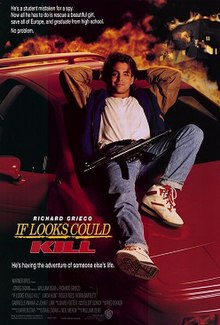
Roger Joseph Ebert was an American film critic, film historian, journalist, essayist, screenwriter and author. He was the film critic for the Chicago Sun-Times from 1967 until his death in 2013. Ebert was known for his intimate, Midwestern writing style and critical views informed by values of populism and humanism. Writing in a prose style intended to be entertaining and direct, he made sophisticated cinematic and analytical ideas more accessible to non-specialist audiences. Ebert endorsed foreign and independent films he believed would be appreciated by mainstream viewers, championing filmmakers like Werner Herzog, Errol Morris and Spike Lee, as well as Martin Scorsese, whose first published review he wrote. In 1975, Ebert became the first film critic to win the Pulitzer Prize for Criticism. Neil Steinberg of the Chicago Sun-Times said Ebert "was without question the nation's most prominent and influential film critic," and Kenneth Turan of the Los Angeles Times called him "the best-known film critic in America." Per The New York Times, "The force and grace of his opinions propelled film criticism into the mainstream of American culture. Not only did he advise moviegoers about what to see, but also how to think about what they saw."

Casablanca is a 1942 American romantic drama film directed by Michael Curtiz and starring Humphrey Bogart, Ingrid Bergman, and Paul Henreid. Filmed and set during World War II, it focuses on an American expatriate (Bogart) who must choose between his love for a woman (Bergman) and helping her husband (Henreid), a Czechoslovak resistance leader, escape from the Vichy-controlled city of Casablanca to continue his fight against the Germans. The screenplay is based on Everybody Comes to Rick's, an unproduced stage play by Murray Burnett and Joan Alison. The supporting cast features Claude Rains, Conrad Veidt, Sydney Greenstreet, Peter Lorre, and Dooley Wilson.

La Femme Nikita, also called Nikita in France, is a 1990 French-language action thriller film written and directed by Luc Besson. The film stars Anne Parillaud as the title character, a criminal who is convicted and sentenced to life imprisonment for murdering policemen during an armed pharmacy robbery. Her government handlers fake her death and recruit her as a professional assassin. After intense training, she starts a career as a killer, where she struggles to balance her work with her personal life. She shows talent at this and her career progresses until a mission in an embassy goes awry.
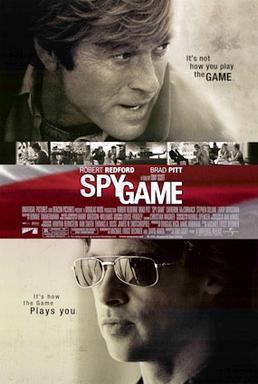
Spy Game is a 2001 action thriller film directed by Tony Scott and starring Robert Redford and Brad Pitt. The American–French–German–Japanese co-production grossed $62 million in the United States and $143 million worldwide on a $115 million budget and received mostly positive reviews from film critics.

The Three Colours trilogy is the collective title of three psychological drama films directed by Krzysztof Kieślowski: Three Colours: Blue (1993), Three Colours: White (1994), and Three Colours: Red (1994), represented by the Flag of France. The trilogy is an international co-production between France, Poland, and Switzerland in the French language, with the exception of White in Polish and French.

Mobsters is a 1991 American crime drama film directed by Michael Karbelnikoff. It details the creation of The Commission. Set in New York City, taking place from 1917 to 1931, it is a semi-fictitious account of the rise of Charles "Lucky" Luciano, Meyer Lansky, Frank Costello, and Benjamin "Bugsy" Siegel. The film stars Christian Slater as Luciano, Patrick Dempsey as Lansky, Costas Mandylor as Costello and Richard Grieco as Siegel, with Michael Gambon, Anthony Quinn, Lara Flynn Boyle, and F. Murray Abraham in supporting roles.

The Frighteners is a 1996 supernatural comedy horror film directed by Peter Jackson and co-written with Fran Walsh. The film stars Michael J. Fox, Trini Alvarado, Peter Dobson, John Astin, Dee Wallace Stone, Jeffrey Combs, R. Lee Ermey and Jake Busey. The Frighteners tells the story of Frank Bannister (Fox), an architect who develops psychic abilities allowing him to see, hear, and communicate with ghosts after his wife's murder. He initially uses his new abilities to befriend ghosts, whom he sends to haunt people so that he can charge them handsome fees for "exorcising" the ghosts. However, the spirit of a mass murderer appears posing as the Grim Reaper, able to attack the living and the dead, prompting Frank to investigate the supernatural presence.

Suburban Commando is a 1991 American science fiction action comedy film directed by Burt Kennedy, produced by Howard Gottfried, and written by Frank Cappello. The film stars Hulk Hogan, Christopher Lloyd, Shelley Duvall, and Larry Miller. Additionally, a young Elisabeth Moss briefly appears in her film debut.
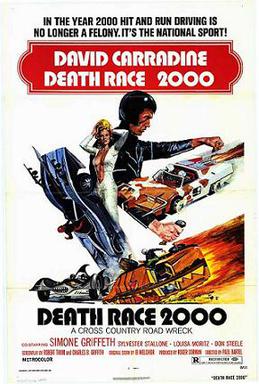
Death Race 2000 is a 1975 American dystopian science-fiction action film directed by Paul Bartel and produced by Roger Corman for New World Pictures. Set in a dystopian American society in the year 2000, the film centers on the murderous Transcontinental Road Race, in which participants score points by striking and killing pedestrians. David Carradine stars as "Frankenstein", the leading champion of the race, who is targeted by an underground rebel movement seeking to abolish the race. The cast also features Simone Griffeth, Sylvester Stallone, Mary Woronov, Martin Kove, and Don Steele.
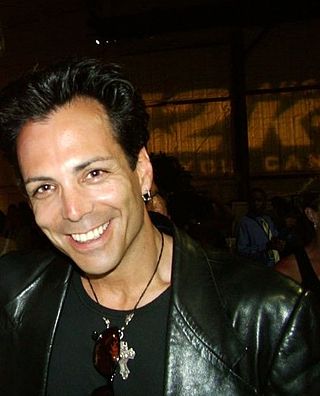
Richard John Grieco Jr. is an American actor, artist, and former fashion model. He played Detective Dennis Booker in the popular Fox series 21 Jump Street (1988–89) and its spin-off Booker (1989–90). He has also starred in various films, including If Looks Could Kill and Mobsters. He has voiced characters in several video games and appeared as either himself or his 21 Jump Street character in several films and television shows. Since 2009, he worked as a painter, working in a style he calls abstract emotionalism.

Paycheck is a 2003 American science fiction action film directed by John Woo. Written by Dean Georgaris, it is based on the 1953 short story "Paycheck" by Philip K. Dick. The film stars Ben Affleck, Uma Thurman, Aaron Eckhart, Paul Giamatti, Michael C. Hall, Joe Morton, and Colm Feore. The film was released on December 25, 2003, by Paramount Pictures in North America and DreamWorks Pictures internationally, to negative reviews.
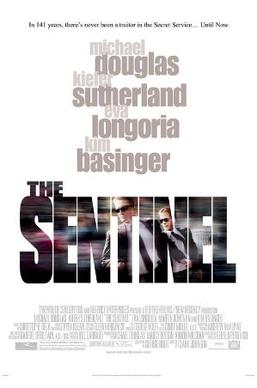
The Sentinel is a 2006 American political action thriller film directed by Clark Johnson about a veteran United States Secret Service special agent who is suspected of treason after an attempted assassination of the president reveals that someone within the Service is supplying information to the assassins.

Dracula 3D is a 2012 vampire horror film directed by Dario Argento from a screenplay he wrote with Enrique Cerezo, Stefano Piani, and Stefano Piani. It stars Thomas Kretschmann as Count Dracula, alongside Marta Gastini, Asia Argento, Unax Ugalde, Miriam Giovanelli, and Rutger Hauer.

The In-Laws is a 2003 American action comedy film starring Michael Douglas, Albert Brooks, Robin Tunney, Ryan Reynolds and Candice Bergen. The film is a remake of the original 1979 cult classic of the same name. Scenes for the 2003 film were shot on location in Chicago. The film was a box office failure and received mixed to negative reviews.
Tom Rack is a Canadian actor and writer best known for his portrayal of henchman Zigesfeld in the 1991 film If Looks Could Kill, and for twice portraying physicist Dr.Robert Oppenheimer.

Monsieur Hire is a 1989 French crime drama film directed by Patrice Leconte and starring Michel Blanc in the title role and Sandrine Bonnaire as the object of Hire's affection. The film received numerous accolades as well as a glowing review from the American film critic Roger Ebert, who later added the film to his list of "Great Movies." The screenplay of the film is based on the novel Les Fiançailles de M. Hire by Georges Simenon and has original music by Michael Nyman. Simenon's novel was previously filmed in 1947 by Julien Duvivier as Panic (Panique) starring Michel Simon.
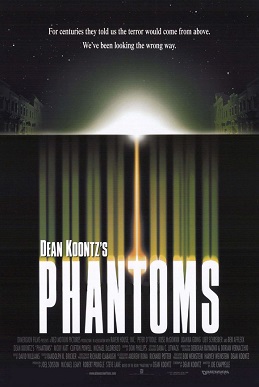
Phantoms is a 1998 American science fiction horror film directed by Joe Chappelle and starring Peter O'Toole, Rose McGowan, Joanna Going, Liev Schreiber, Ben Affleck, Nicky Katt, and Clifton Powell. The screenplay was adapted by Dean Koontz from his own 1983 novel of the same name. The film takes place in the peaceful town of Snowfield, Colorado, where something evil has wiped out the community. It is up to a group of people to stop it or at least get out of Snowfield alive.
Nasty Canasta is a cartoon character and antagonist of the Merrie Melodies and Looney Tunes series who made appearances in three cartoons. Created by animator Chuck Jones, Canasta is depicted as a tough, hulking, and brutish-looking outlaw. Like other similar antagonists in Looney Tunes, he is a typical 'dumb muscle' but is relatively more criminal in his personality and much more intimidating, especially in his nearly superhuman physique and threatening use of his revolver pistols. He was originally voiced by Mel Blanc, with Daws Butler voicing him in Barbary Coast Bunny.

The Miracle is a 1991 drama film written and directed by Neil Jordan. It stars Beverly D'Angelo, Donal McCann, and Niall Byrne. It was entered into the 41st Berlin International Film Festival.

The Sins of Ilsa is a 1985 American adult erotic film, based on a novel by Iris Murdoch, filmed in New York City and, for exteriors, in Paris. The film is notable as the last film directed by Radley Metzger and, as of November 2019, has not yet been released publicly.
